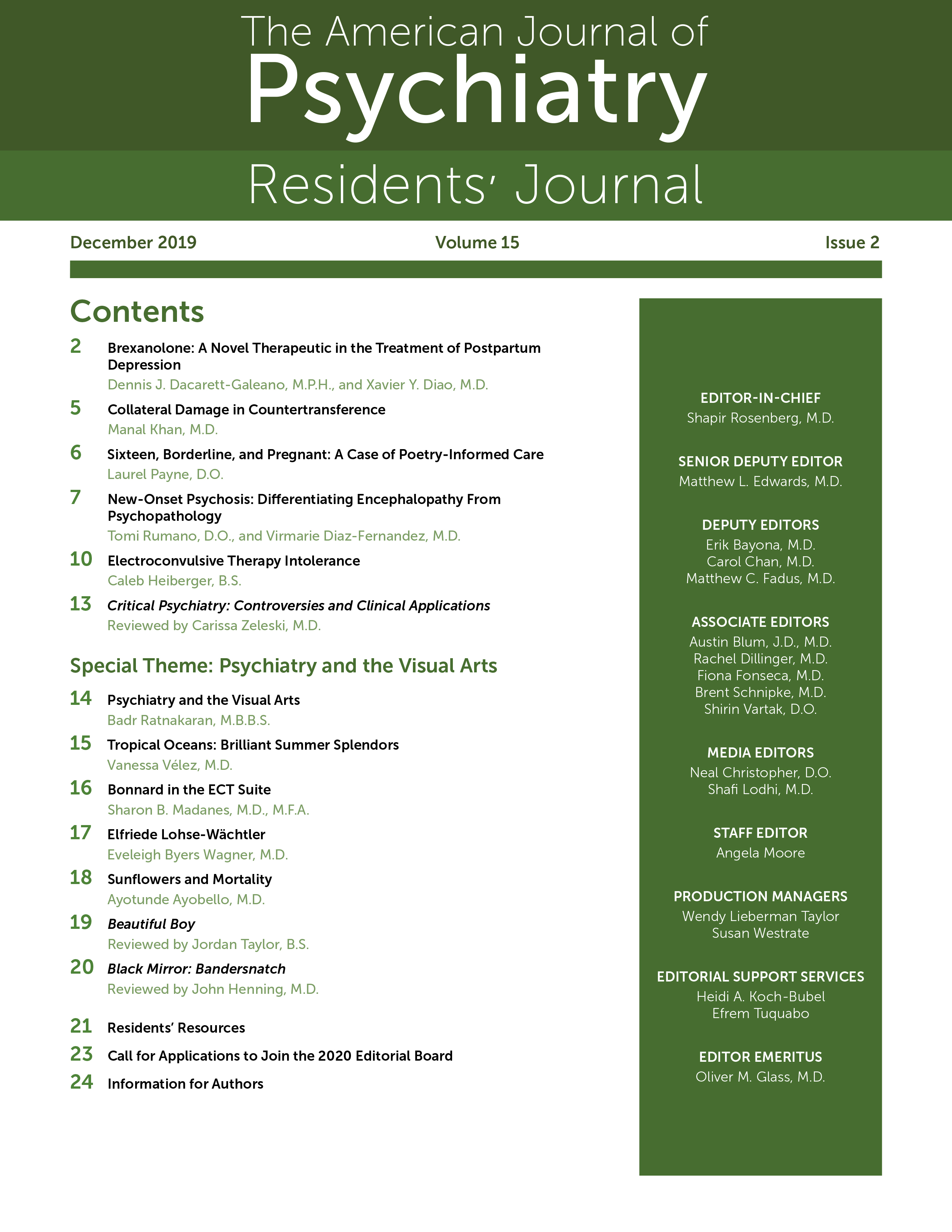"Miss K," a 16-year-old female with a history of multiple hospitalizations and suicidal gestures, presented to the inpatient unit with acute suicidality. The psychiatry team met with her daily and discussed her persistent depression, which had prominent themes of abandonment by her mother. Although there was evidence that she had some characterological traits, it was not until she shared her poetry that the team began to consider a diagnosis of borderline personality disorder (BPD).
Through her poems, she shared with the team some of her most personal inner experiences of insecure identity, relationship turbulence, and emotional intensity. These expressions became the primary focus of discussion and helped us communicate her diagnosis of BPD (
1).
Because BPD is often related to early childhood attachment patterns (
2), the team further explored the patient’s relationship with her mother. She said that her mother had serial boyfriends and thus was often not emotionally present, was somewhat dismissive of the abuse that she had experienced, and was unable to provide consistent boundaries or a safe environment. Miss K aptly noted that she, like her mother, had multiple dramatic and unstable relationships.
Two weeks into her hospital stay, she reported morning nausea; a pregnancy test (initially negative) was positive and confirmed by ultrasound. She had unprotected sex prior to admission and was determined to be three weeks pregnant. Her medications were discontinued; however, her mood changed abruptly. She was no longer suicidal but euthymic and optimistic about her future with her baby.
Suddenly, the clinical import of the patient’s borderline experience gained dimension. When asked about her reasons for wanting to keep the baby she said, "Because I’ll always have someone who will love me." Given the associated increase in psychopathology among offspring of mothers with BPD, the team prompted Kate to describe how she could provide her child with an environment of consistency and safety. She recognized how her mother was not able to do that for her, and she began to see how her actions and emotions could affect the life of her yet unborn child, just as her mother’s actions and emotions so profoundly affected her (
3).
Awaiting disposition, Miss K remained an inpatient for 42 days and was finally discharged to a home for pregnant teenagers. In a telephone follow-up interview 2 years later, she generously consented to share her story as well as her poetry. She reported that she had given birth to a healthy daughter, now with loving parents via an open adoption. She had received her high school diploma and enrolled in college and had not returned to the hospital.
This case is an elegant example of how a patient’s poetry led us to a diagnosis and to dialogue about the multigenerational effects of BPD. It represented a shift from clinician-administered diagnostic questioning to a phenomenological approach in which the patient was able to communicate her personal experience of BPD. The interaction allowed her a much-needed sense of acceptance that facilitated reflection and openness to treatment, leading to clinical progress and healing.
Acknowledgments
The author thanks Drs. Cecilia DeVargas and Marie Leiner for their teaching and collaboration on the case described in this manuscript.
